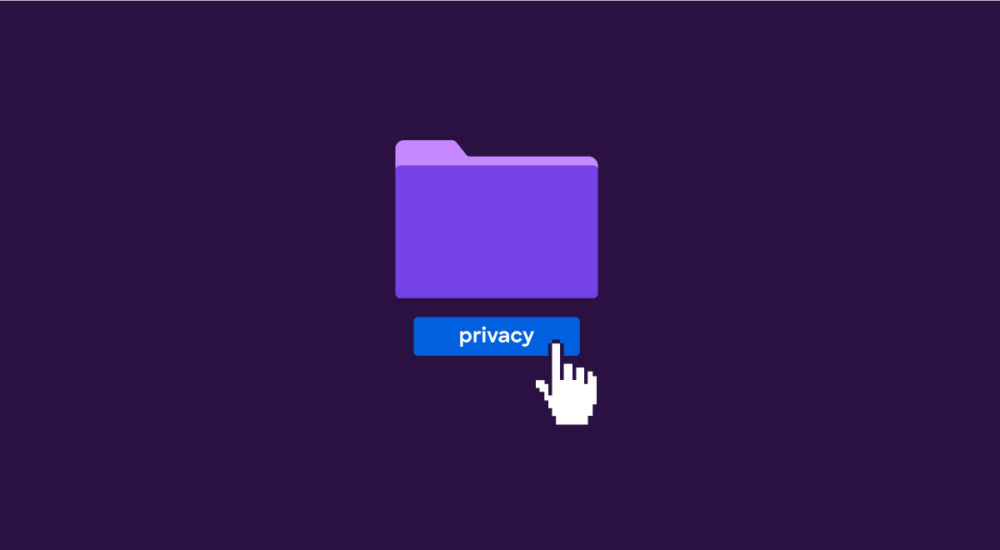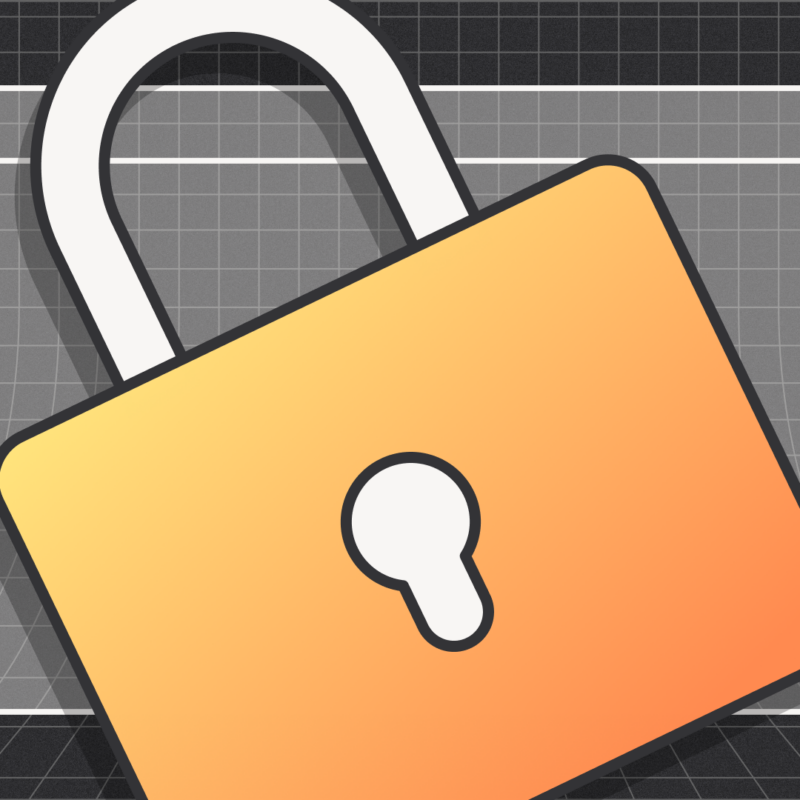One year from now in the United States, the presidential primary elections will be underway. No matter your political lean, you’ll want to know the facts. What do all of these politicians believe? How do their beliefs align with mine? What have they done to support issues I care about? What do they plan to do policy-wise if elected? After all, a well-informed electorate is critical to any democracy.
The internet is a tool, imperfect as it may be, for voter education. And, it’s a tool that can be strengthened by privacy protections online. Online privacy preserves three core components of learning and decision making that are necessary for an educated base of voters: freedom of association, truth-finding, and opportunities to discover new perspectives.
More privacy online means more democracy in real life.
More privacy means more freedom of association
Despite the perceived apathetic attitude to corporate and unwarranted surveillance online (the “why-should-I-care-if-I-have-nothing-to-hide?” attitude), study after study shows that people care a great deal about being watched. We alter our behaviors if we know we’re being observed, and we pick and choose who we associate with in a more restrictive fashion. This is problematic because democracy is realized, in part, through groups and networks online and off that we join and leave at will — not just through the actions of individuals.
Offline, visiting a photography exhibit documenting the lives of families crossing the Mexican-American border wouldn’t be something you’d worry about — unless, for example, you found out that the government was keeping track of attendees. In this case, you may decide not to attend at all. Unwarranted government surveillance has this same effect online that does in the real world. A 2016 paper published in Journalism and Mass Communication Quarterly found that “the government’s online surveillance programs may threaten the disclosure of minority views and contribute to the reinforcement of majority opinion.”
Online surveillance is not limited to government. As scholar and author Shoshana Zuboff asserts in the IRL podcast episode about surveillance capitalism, our data is not just being collected and sold online; we’re also being surveilled online through the collection and analysis of our data, and corporations are using it to steer us toward “courses of action that are going to be most profitable” for them. Due to this, being unwillingly and unconsciously steered to-or-away from groups of individuals online based on what will be most profitable for Big Tech is a reality, with little-to-no transparency about our data’s use.
Unwarranted surveillance online — government and corporate — restricts our freedom of association, conscious or unconscious. And, more transparency about how our information is used, for what, and why would give us all more control of our privacy and contribute to more freedom of association, something critical to mobilization of groups and ideas in a democracy.
More privacy means more truth
Truth: it’s something we search for — especially as we consider how to vote — and we like to think we know when we’ve found it. But, misinformation is rampant on the internet, and sometimes it’s hard to know what’s real, and what’s not.
More Privacy → More Truth
Less Privacy → More Misinformation
Misinformation delivered to your social media feed or inbox is often made possible by microtargeting. Microtargeting is an advertising practice that uses people’s data — about what their interests are, who their friends are, what their demographics are, what they’ve purchased, and more — to segment them into small groups for content targeting. The practice requires lots of data, the antidote to privacy.
Take Facebook, for example. Facebook lets political advertisers target you with content — ‘facts’ that are true and ‘facts’ that are not true — by tracking your activity on and off their platform. All of the data they capture feeds the microtargeting industry and misinformation at large, making it more difficult for all of us to get educated about the political issues that matter to us. Perhaps more alarming, foreign governments have utilized microtargeting to get misinformation into our newsfeeds for the purpose of influencing U.S. elections.
Related reading:
Mozilla getting serious about Facebook’s political ad transparency
EU Parliament Elections: Fight back against disinformation and manipulation
Giving users more control over their privacy choices online would limit microtargeting and reduce the spread of misinformation. And, as social networks scope out their individual efforts to address this issue, we can all take steps to increase our online privacy in the meantime. Notably, you can get Firefox’s Facebook Container extension for free, which keeps Facebook from tracking you as you browse across the Web.
More privacy means more perspectives
In the 1960s, media theorist Marshall McLuhan prophesied that the internet would be a global village of sorts, where all people could form a community from all over the world. People could hear many perspectives, and share many perspectives.
In 2019, the internet doesn’t quite hold up to the term in its entirety, connective tissue as it may be. Algorithms, driven by data, serve us content and perspectives that reinforce our existing opinions. If you believe that the earth is flat, you’re less likely to see content that suggests that the earth is round. If you believe that the earth is round, you’re less likely to see content that suggests that the earth is flat. (Take this earth shape metaphor and apply it to your political issue of choice.)
The global village that was once the internet was has been replaced by digital islands of isolation that are drifting further apart each day.” – Mostafa M. El-Bermawy, Wired
Social networks and advertisers profit by filter bubbles: Wharton researches found a 50% jump in purchasing behavior while studying consumers inside a personalized filter bubble and comparing their behaviors to those not inside a personalized filter bubble. When more profit and more perspectives run into tension, it’s clear which will win.
If corporations gave individuals more control over their privacy online and consumers made choices to limit tracking, we’d see a reduction of the ability of platforms to push like-minded content on us. The weight of varying perspectives would be greater, and we’d more freely discover new points of view. More perspectives would lessen confirmation bias, the confirmation of ideas we already hold, which leads to political polarization and worse — the population checking out of politics entirely, as Syracuse Professor Emily Thorson points out in this short film about democracy and the internet.
In 2019, we do expect to see several policy proposals in the U.S. that would incentivize corporations to give people more choices about their data, which could potentially reduce the prevalence and strength of filter bubbles. Keep an eye out for these proposals, and in the meantime, be choosy with your technology. Use products that don’t buy or sell your data (like Firefox).
More privacy means more democracy
Democracies aren’t effective unless citizens are informed and empowered. They are strengthened by freedom of association. They’re weakened by misinformation and by filter bubbles.
The more we can join and leave groups at will online, the more truth we can find, and the more perspectives unlike our own we can read, the better equipped we will be to take on our civic duty: to vote. And, to preserve these opportunities and our own roles in the democracies we hold dear, online privacy needs to become something we have control over. Some will tell you that it’s too late. That our actions — big and small — don’t make a difference. We disagree. There’s still time to reclaim our privacy and to protect our democratic process, traditions and institutions. Without privacy, we lose liberty. Let’s not let that happen.
Firefox keeps your data safe. Never Sold.



